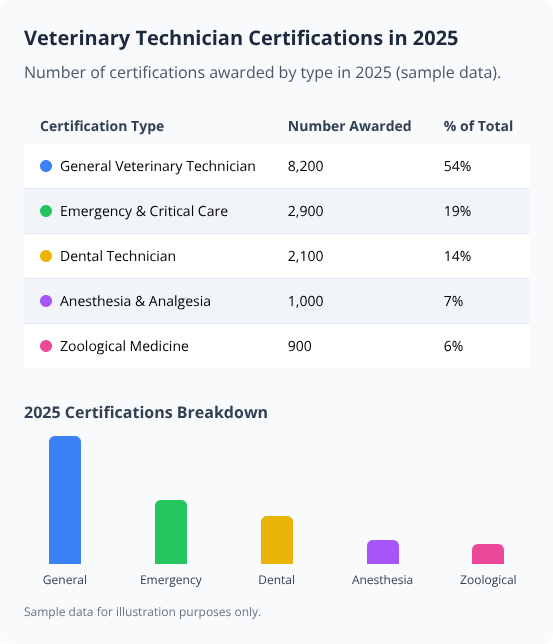Veterinary Technician Resume Certifications

A resume without the right certifications is like a veterinarian without a stethoscope—good luck making a diagnosis. This article paws through why those credentials matter and tells you exactly which badges of honor to flaunt. Get ready to upgrade your resume from basic to animal hospital MVP.
The Value of Certifications in Veterinary Technician
A certification hanging beside your name isn’t just a piece of paper—it’s a signal, bright and clear, that you know your craft inside out. Clients and employers alike can’t help but lean in, reassured by visible proof of your expertise and commitment. In a sea of applicants, that certification shouts a little louder, drawing eyes and interest with the promise of higher standards. It’s reassurance, a differentiator, and sometimes, the very ticket that unlocks new career doors.

Adding a certifications section to your resume can really boost your chances, especially for veterinary technician jobs where proven skills and credentials matter.
Top 7 Certifications for Veterinary Technician Resumes
- Veterinary Technician National Examination (VTNE): The VTNE is the essential standardized exam for vet techs in the US and Canada, proving baseline competence required for licensure.
- Certified Veterinary Technician (CVT): Earning the CVT credential showcases a tech’s successful completion of an accredited program and passage of the VTNE, cementing key professional credibility.
- Licensed Veterinary Technician (LVT): LVT status, awarded after meeting state-specific criteria and passing the VTNE, signals a tech can legally practice and handle increased responsibilities.
- Registered Veterinary Technician (RVT): RVT certification, recognized in several states, distinguishes a tech who’s met rigorous educational and testing standards, boosting trust and career mobility.
- Veterinary Technician Specialist (VTS): The VTS credential demonstrates advanced expertise in specialty areas like anesthesia, dentistry, or emergency/critical care, opening doors to higher-level clinical roles.
- Fear Free Certification: This program equips vet techs with skills to minimize animal fear, stress, and anxiety in clinical settings, making them invaluable for compassionate care teams.
- Certified Laboratory Animal Technician (LAT): Earning LAT status from AALAS highlights proficiency in laboratory animal care, essential for techs working in research or biomedical settings.
DO'S
- Do list all relevant certifications with their official titles and issuing organizations.
- Do include expiration or renewal dates to show current status.
- Do place certifications in a dedicated section near the top or within your education details.
DON'TS
- Don't list expired or irrelevant certifications.
- Don't overcrowd with acronyms nobody recognizes.
- Don't exaggerate the importance of basic or mandatory certificates.
Pro Tip: When you spotlight your most relevant certifications on your Veterinary Technician resume, you immediately show employers you’re equipped with exactly the knowledge and skills they’re hunting for—no guesswork, no sifting, just instant proof you belong in their clinic.



